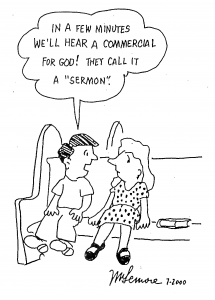Remember to set your clocks back 1 hour on November 2nd!
The Rector will be Away October 15 – November 5
Bill and I will be away for three weeks beginning October 15th. We’ll be visiting family, taking part in the 150th anniversary of my former parish, squeezing in a few days on the Gulf Coast, and presiding at a wedding before heading home. This Sunday will be covered by the Rev. Randy Wakitsch. In case of an emergency, please call Lisa in the office (Tuesday – Friday, 9am to 1pm) or one of the wardens. Please keep us in your prayers as we travel; you will be in ours. lml+
Senior Warden Deb Lang – (815) 354-6741
Junior Warden Pam Dietmeyer – (815) 354-3507
Men’s Breakfast Saturday, November 1st, 8:00 a.m.
All men of the parish (and their friends) are invited to share breakfast and conversation at Kim & Patty’s.
Women’s Wednesday November 5th, 7:00 p.m.
Women of the parish (and their friends) are welcome to meet for wine, refreshments, and conversation.
Lessons and Hymns Sunday, November 2nd
(Pentecost XXI – Proper 26 A)
by the Rev. William McLemore
THE SCRIPTURE LESSONS:
The First Reading: The Track I readings are Joshua 3:7-17 and Psalm 107:1-7,33-37; the Track II readings are Micah 3:5-12 and Psalm 43. Joshua is told by the Lord to select twelve priests: one from each tribe to carry the Ark of the Covenant. Micah prophecies the destruction of Jerusalem and the temple. The Track I Psalm recalls the journey of Israel to the Promised Land, and the Track II Psalm reads, “Send out your light and your truth, that they may lead me.”
The Epistle: Thessalonians 2:9-13. Paul reminds the church at Thessalonica that they are witness for the Gospel of Christ.
The Gospel: Matthew 23:1-12. Here, Jesus chastises the scribes and Pharisees for their outward and visible behavior with an inward and spiritual faith.
THE HYMNS:
PROCESSIONAL HYMN: No. 287. “For All the Saints, Who From Their Labors Rest.” This popular hymn for All Saints Day was written by the Rt. Rev. William Washam How (1823-1897), popularly known in England as the “Children’s Bishop.” The fourth verse connects those of us who struggle on this earth with those who live in glory in heaven: “O blest communion, fellowship divine! We feebly struggle, they in glory shine; yet all are one in thee, for all are thine.” The stirring tune, “Sine Nomine.” was written especially for this hymn by Ralph Vaughan Williams (1872-1958) in 1906.
THE SEQUENCE HYMN: No. 440. “Blessed Jesus at Thy Word.” This hymn was written in German by Tobias Clausnitzer (1619-1684) and translated by Catherine Winkworth, who was a very notable English song writer and translator. She is also known for her passionate and ardent support of women in higher education. The tune, “Leibster Jesu” is a melody by Johann Rudolph Ahle (1625-1673) and later harmonized by George Herbert Palmer in the early 20th century.
PRESENTATION HYMN: No. 526. “Let Saints on Earth in Concert Sing.” This hymn, which has been placed in the ‘CHURCH’ section of our hymnal, is actually one of Charles Wesley’s funeral songs published in 1759. The words end with the image of Jesus as our constant guide through life-leading us towards our final and joyful union with God and all the saints in heaven. The tune, “Dundee,” is from the Scottish Psalter of 1615.
COMMUNION HYMN: No. 712 “Dona Nobis Pacem.” These three words are Latin for “Grant Us Peace” and the hymn is an old monastic canon of unknown authorship and composing. As we approach the altar for Holy Communion, we want to pray for peace in our hearts and souls and these words are a wonderful preface to receiving this sacrament. This will be our communion hymn for the month of November.
RECESSIONAL HYMN: No. 625. “Ye Holy Angels Bright.” This is a composition of the Rev. Richard Baxter (1615-1691) a fiery Anglican priest who was very independent in thought and action. He challenged Oliver Cromwell for declaring himself the “Lord Protector of the Commonwealth of England, Scotland, and Ireland”, which, among other things, netted him a two-year prison sentence. He died December 8, 1691 at the age of 76. The tune, “Darwall,” was composed by and named after John Darwall to be used singing Psalm 148. It is majestic and beautiful, especially when the last verse is accompanied by the soprano descant.
November 22nd Servants
Ushers: Bob Backer, Terry Jaworski Lector: Rick Carlstedt Intercessor: Judy Robel Eucharistic Ministers: Nancy Backer, Al Robel Vestry Person of the Day: Kathy Biggerstaff101 Reasons to be an Episcopalian
Reason 58
“We proudly wear ribbons of so many different colors.”
Mary Jane Herron, Diocese of Newark
From the cartoons created by the Rev. William P. McLemore
1965 – 2014


